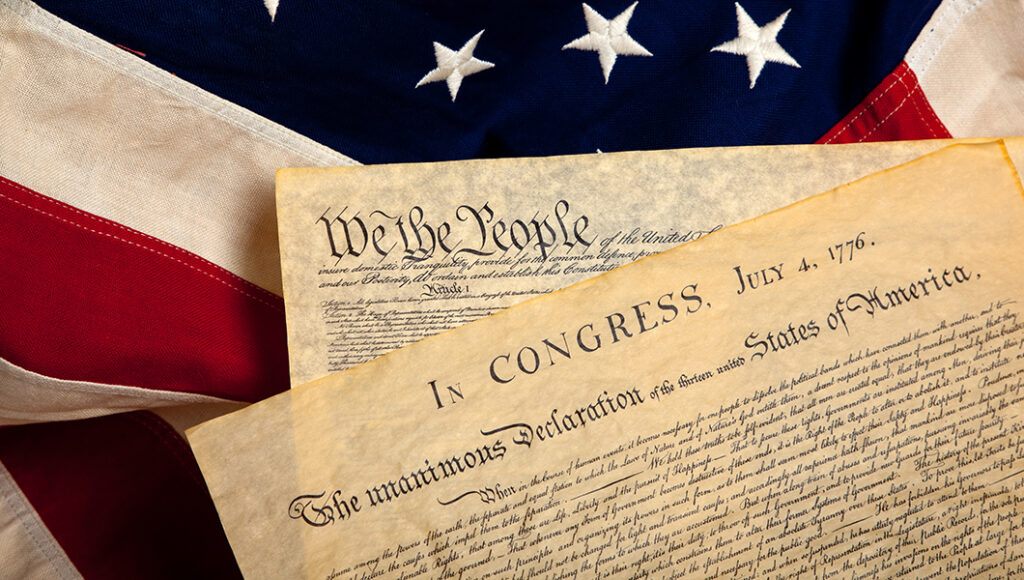
If you listen to enough political speeches, then you will hear a politician refer to America as a “city upon a hill.” Presidents John F. Kennedy, Ronald Reagan, and Barack Obama, for example, all have employed this image in their rhetoric. Each has used it to describe America as an example for the world.
The phrase ultimately traces back to Jesus’s Sermon on the Mount in Matthew 5:14, referring to the church. But the first person to apply it to our land was John Winthrop, who was born on this day in 1588.
He used the term in 1630 in a speech to those traveling with him from England to settle the New World. The speech, and the city image, sought to articulate Winthrop’s hopes for establishing a Christian commonwealth that would be either a good or bad influence on the rest of the world, depending on its faithfulness.
Though his most famous piece of rhetoric, it might not be his most useful for our own time. Instead, on his birthday, we should remember his “Little Speech on Liberty,” given 15 years later in 1645. This speech, given after he was acquitted on charges of abusing his office, was quoted approvingly by Alexis De Tocqueville in his seminal work, Democracy in America.
Winthrop declared his support for liberty. In that claim, he would fit in well with much of the American political rhetoric in the centuries after his own rule as governor of the Massachusetts Bay Colony. But he then contrasted true liberty with a false pretender, a distinction we have lost sight of in our own times.
Winthrop gave two definitions of liberty, the first of which he called natural. Natural liberty looked a lot like moral libertarianism. He defined it as a person’s “liberty to do what he lists: it is a liberty to evil as well as to good.” This understanding of liberty has come to dominate so much of our political and cultural thinking. Many, including former Justice Anthony Kennedy on the Supreme Court, have come to define liberty as the right to do what you want so long as no one else is harmed. Even more expansive, this train of thought has come to equate liberty with a kind of autonomous self-definition that all others must not only permit but accept and approve.
Winthrop derided this form of liberty. It treated people like beasts who were not really free but instead enslaved to their own sensations and passions, he argued. Winthrop held a dark view of human nature, one shared by later founders such as James Madison, and thought this indulgence without any objective moral compass would only train people in self-destructive evil.
A better understanding of liberty existed, which Winthrop called civil liberty. It was “a liberty to that only which is good, just, and honest.” In other words, it was a liberty understood in relation to human virtue, both intellectual and moral. It saw true liberty as the cultivation of dispositions and habits aligned with the just and the good as founded in the law of nature and of God. Liberty in this sense was a form of self-government, not self-expression or self-actualization.
CLICK HERE TO READ MORE FROM THE WASHINGTON EXAMINER
We could use more of this latter liberty today. Our Constitution was built on it. “We, the People” were only fit to govern as a nation if and when we were able to control ourselves in accordance with justice. It was civil liberty that George Washington fought for in the American Revolution. It was the liberty expanded to more people by the Civil War. It is the liberty our Constitution’s preamble offers, one whose blessings we are bound to secure for ourselves and transmit to our descendants.
On Winthrop’s birthday, we would do well to take his view on liberty to heart. We could do much to improve ourselves and our country if we better understood and pursued liberty as virtuous self-government. That improvement would be a fitting turn back to Winthrop’s more famous phrase — for in pursuing true liberty, we would look much more like a political shining city on a hill.
Adam Carrington is an associate professor of politics at Hillsdale College.
